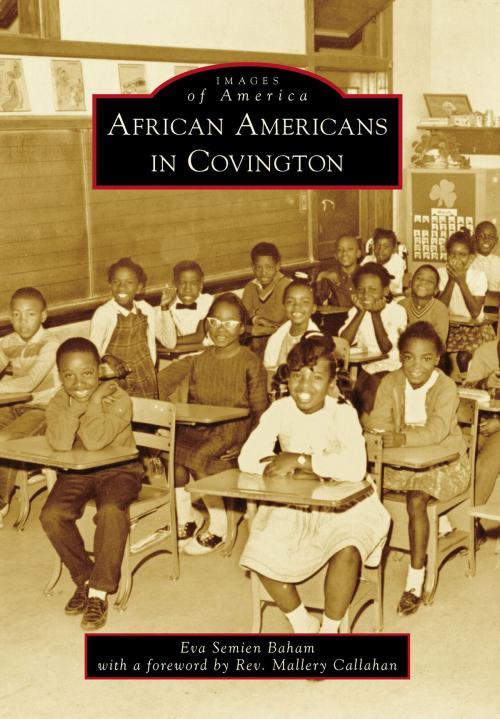African Americans in Covington
Nonfiction, Art & Architecture, Photography, Pictorials, History, Social & Cultural Studies, Social Science, Cultural Studies, African-American Studies, Fiction & Literature, Literary Theory & Criticism| Author: | Eva Semien Baham | ISBN: | 9781439651650 |
| Publisher: | Arcadia Publishing Inc. | Publication: | June 1, 2015 |
| Imprint: | Arcadia Publishing | Language: | English |
| Author: | Eva Semien Baham |
| ISBN: | 9781439651650 |
| Publisher: | Arcadia Publishing Inc. |
| Publication: | June 1, 2015 |
| Imprint: | Arcadia Publishing |
| Language: | English |
Covington is the seat of St. Tammany Parish government and sits north of Lake Pontchartrain in the New Orleans metropolitan area. Records from 1727 show 11 Africans on the north shore. One person of African descent was present at the founding of Covington on July 4, 1813. Most African Americans in antebellum Covington were slaves, with a modest number of free people, all of whom covered nearly every occupation needed for the development and sustenance of a heavily forested region. For more than 200 years in Covington, African Americans transformed their second-class status by grounding themselves in shared religious and social values. They organized churches, schools, civic organizations, benevolent societies, athletic associations, and businesses to address their needs and to celebrate their joys.
Covington is the seat of St. Tammany Parish government and sits north of Lake Pontchartrain in the New Orleans metropolitan area. Records from 1727 show 11 Africans on the north shore. One person of African descent was present at the founding of Covington on July 4, 1813. Most African Americans in antebellum Covington were slaves, with a modest number of free people, all of whom covered nearly every occupation needed for the development and sustenance of a heavily forested region. For more than 200 years in Covington, African Americans transformed their second-class status by grounding themselves in shared religious and social values. They organized churches, schools, civic organizations, benevolent societies, athletic associations, and businesses to address their needs and to celebrate their joys.















